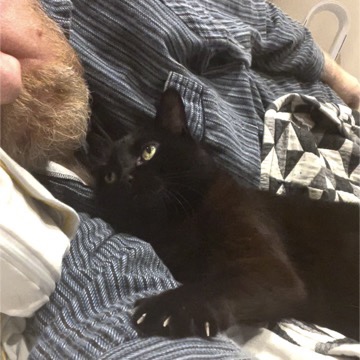If you know one autistic person, you know one autistic person. An assistance cat’s skills should be tailored to the handler’s specific needs. The skills described here are those which suit my cat Chloe and which I find most helpful. Another autistic person and cat partnership may prefer a different combination.
Introducing structure
Like many autistic people, I live alone. Without routine, it’s possible to enter a vicious cycle where delayed bedtimes, lack of sleep, missed meals, and binge-eating result in a downward spiral of increased isolation and poor mental health.
If we teach a cat to expect to be fed or receive a treat at the same time every day, we can make use of their internal alarm clock to provide reminders that are much harder to ignore than a mobile phone’s alarm clock function.
Wake up
Like many autistic people, I have insomnia and have always struggled to wake up in the morning. I also struggle with depression and often feel a desire to withdraw rather than face the world. However, this is rarely a problem today as Chloe is now trained to wake me between 7-8 am.
When the correct time arrives, she watches me. If I move, she then starts meowing. If this fails to wake me, she repeatedly strokes my beard until I rise and reward her with food. In the unlikely event that stroking my beard doesn’t work, she slams down on me with her entire body weight.
As she wakes me after I move, I awake during a light sleep phase, ensuring I wake up feeling more rested.
If I need to wake up at a different time, I set the alarm. When the alarm fires, Chloe follows the same process and wakes me up.
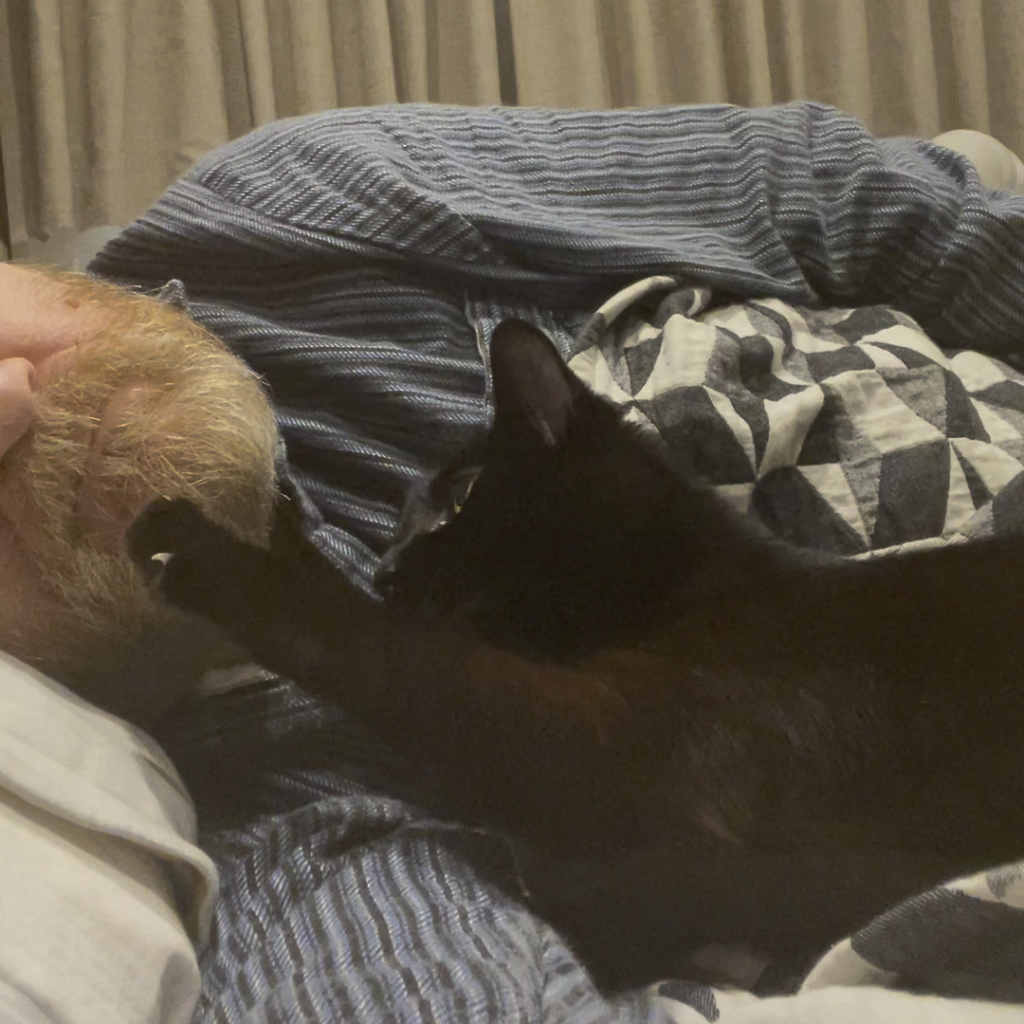
Promoting healthy sleep
As well as waking me up, Chloe reminds me when to go to sleep by rubbing me with her face or tapping me on the arm. If I ignore her, she will lick my hand with her raspy tongue, which I cannot tolerate for too long.
On cue, she will lie across my legs and feet. This works similarly to a weighted blanket (which I didn’t like) and helps me sleep. Overnight, she is trained to sleep alongside me, providing comfort and security.
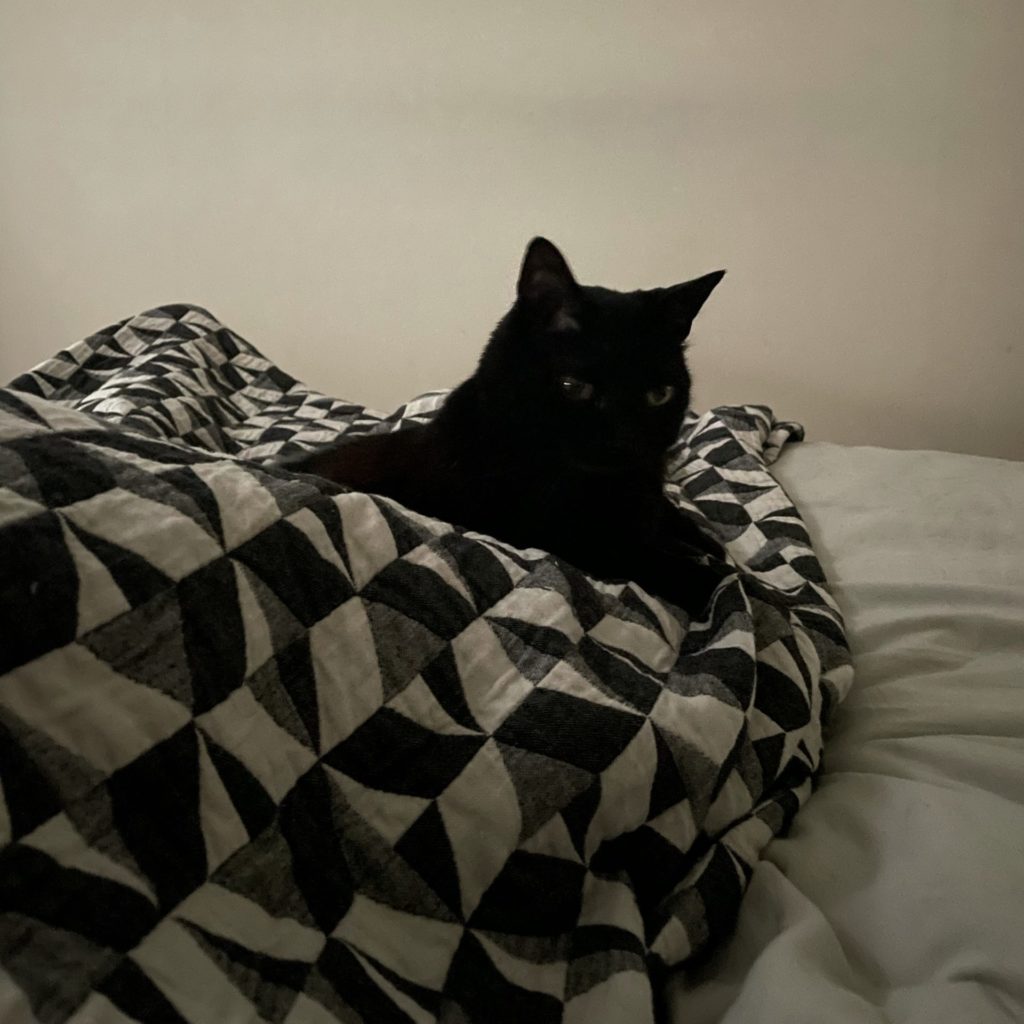
Improving eating patterns
As well as waking me and reminding me to go to bed, Chloe prompts me to have lunch and dinner.
Medication reminders
Chloe reminds me to take daily medication.
Easing transitions and change
In day-to-day life, there are two main types of change and transition:
• Major transitions: for example, changing job or moving house.
• Minor changes: for example, moving from one activity to another or learning that your favourite restaurant dish is not available.
Like many autistic people, I find both challenging. However, the introduction of Chloe has made a significant difference.
Acting as a focal comfort to prevent overstimulation
Most cats are most comfortable at home. They are naturally sensitive creatures that flee from any threat or uncertainty. Unfamiliar sounds, smells, sights, and events can lead to fear and anxiety. However, if we slowly and carefully expose a cat to different circumstances with no untoward consequences, they can become used to them and suffer no ill effects.
Over several years, I have trained Chloe to be comfortable travelling on my shoulder or sitting next to me on a train journey. She will also sit still in a restaurant and quickly adapt to living in a hotel room for several days or weeks. This public access training means she can be ever-present, bringing structure and consistency to my environment.
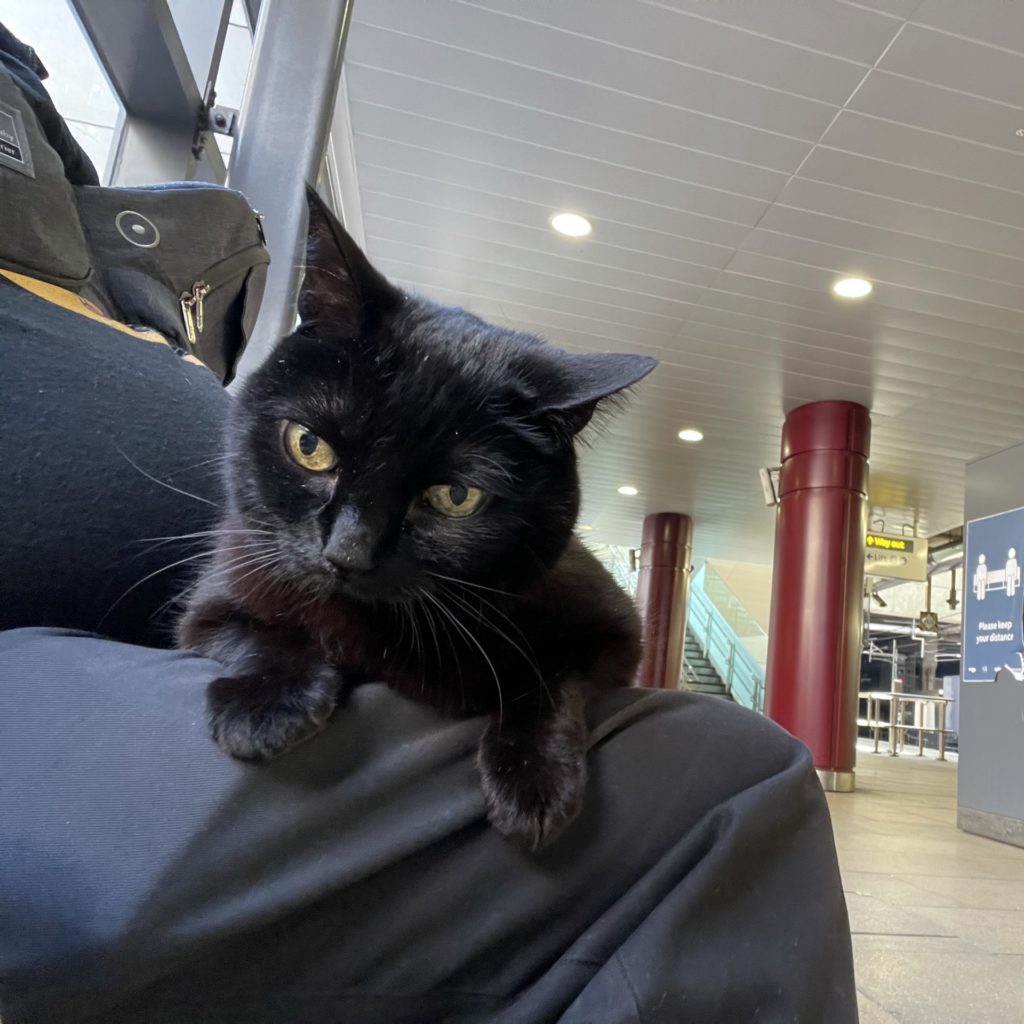
Her familiar texture, smell, and behaviour also help in moments when I feel stressed or overloaded. She acts as focal comfort to prevent shutdowns in overstimulating environments or situations.
Chloe also has a laid back and amiable temperament. She is obedient and unobtrusive. By remaining calm, her relaxed demeanour helps when change occurs.
Reducing anxiety or de-escalating meltdowns
Autistic people are often anxious, which can fundamentally affect daily life. It can lead to meltdowns and depression. Common triggers include being overwhelmed by sensory input such as noise and light and the difficulty of social interactions. This happens to me when travelling by train or tube, or when shopping somewhere noisy.
Chloe assists in several ways.
Tactile stimulation (grounding)
Tactile grounding provides an “anchor” to help prevent environmental overstimulation. During a business or similar meeting, I can call Chloe to stay in my lap. I will then relax by stroking the base of her ears, under her chin, around her cheeks, or the top of her chest.
Calming through distraction
Chloe taps me on the arm or licks me if I seem overwhelmed. This disrupts sudden overload.
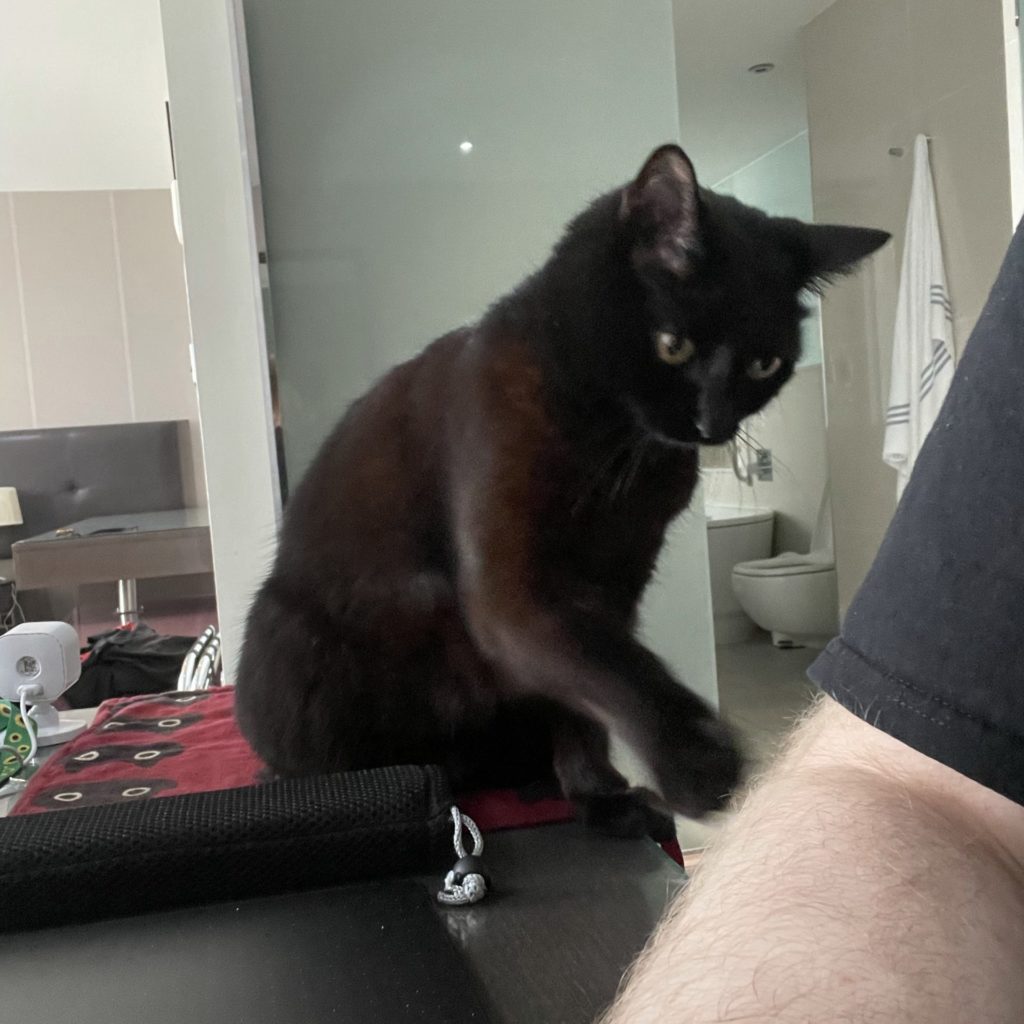
Deep pressure stimulation
When I am anxious, Chloe will place all or part of her body on me for calming. Despite her small size and weight, this calms my sensory system, helps slow my heart rate and decreases fight or flight response. It minimises the severity and duration of an anxiety attack or autistic meltdown. If she is on my shoulder, she will rub her face into mine, which provides a similar effect.
Recognising and interrupting repetitive behaviour
As a child, I was frequently chastised for fidgeting. As a result, I started biting my nails. I am currently training Chloe to recognise when I do this and encourage me to stroke and treat her inside.
Alert owner to name being called
If I am being overwhelmed by noise, I can easily miss my name being called. Chloe will tap my arm or rub my face with hers if she hears it. (Ongoing training. Hard as I need people to call my name in different environments!)
Providing an excuse to leave a situation or take time out
If all else fails, Chloe is trained to respond to a secret cue with attention-seeking behaviour. If in her harness and on the ground, she will try to leave for home. If in my arms, she will meow to get my attention. Having made my excuses to leave the situation, I will reward her. (Currently retraining part of this due to impact of staying at home in lockdown.)
Making communication easier
Acting as social lubricant
When Chloe and I are out in public, people are curious about her, which makes it easier for me to talk to them. If I did not have Chloe and stayed at home, I would become isolated and risk losing my speech through lack of use.
Reducing social anxiety
Having a cat perched on my shoulder demands attention. It means that shop assistants, restaurant staff or similar people seek me out, removing the need for awkward attempts to seek their attention.
Further reading
- Service dogs for children and adults with an autism spectrum disorder (Medical Mutts)
- Autism assistance dog (Wikipedia)
- Service dogs aid people with autism (Pathfinders for Autism)
- Autism Service Dog (Unknown) [PDF]
- The Life-Changing Impact of Autism Service Dogs (The Dog People)
- Work and Task List (Psychiatric Service Dog Partners)
- Skills of Autism Service Dogs in a School Setting (Unknown) [PDF]
- Assistance Dog Tasks (International Association of Assistance Dog Partners)
- Psychiatric Assistance Dog Use for People Living With Mental Health Disorders (Frontiers in Veterinary Science)
- Study finds the most important task for a PTSD service dog for veterans is disrupting anxiety (Purdue University)
- Defining the PTSD Service Dog Intervention: Perceived Importance, Usage, and Symptom Specificity of Psychiatric Service Dogs for Military Veterans (Frontiers in Veterinary Science)
- Service dog tasks for psychiatric disabilities (International Association of Assistance Dog Partners)
